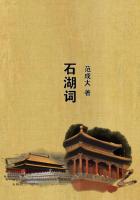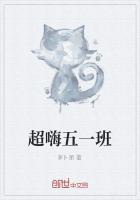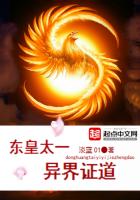I was a little surprised to see Turks and Greeks playing newsboy right here in the mysterious land where the giants and genii of the Arabian Nights once dwelt--where winged horses and hydra-headed dragons guarded enchanted castles--where Princes and Princesses flew through the air on carpets that obeyed a mystic talisman--where cities whose houses were made of precious stones sprang up in a night under the hand of the magician, and where busy marts were suddenly stricken with a spell and each citizen lay or sat, or stood with weapon raised or foot advanced, just as he was, speechless and motionless, till time had told a hundred years!
It was curious to see newsboys selling papers in so dreamy a land as that. And, to say truly, it is comparatively a new thing here. The selling of newspapers had its birth in Constantinople about a year ago, and was a child of the Prussian and Austrian war.
There is one paper published here in the English language-- The Levant Herald --and there are generally a number of Greek and a few French papers rising and falling, struggling up and falling again. Newspapers are not popular with the Sultan's Government. They do not understand journalism.
The proverb says, "The unknown is always great." To the court, the newspaper is a mysterious and rascally institution. They know what a pestilence is, because they have one occasionally that thins the people out at the rate of two thousand a day, and they regard a newspaper as a mild form of pestilence.
When it goes astray, they suppress it--pounce upon it without warning, and throttle it. When it don't go astray for a long time, they get suspicious and throttle it anyhow, because they think it is hatching deviltry. Imagine the Grand Vizier in solemn council with the magnates of the realm, spelling his way through the hated newspaper, and finally delivering his profound decision: "This thing means mischief--it is too darkly, too suspiciously inoffensive--suppress it! Warn the publisher that we can not have this sort of thing: put the editor in prison!"The newspaper business has its inconveniences in Constantinople. Two Greek papers and one French one were suppressed here within a few days of each other. No victories of the Cretans are allowed to be printed. From time to time the Grand Vizier sends a notice to the various editors that the Cretan insurrection is entirely suppressed, and although that editor knows better, he still has to print the notice. The Levant Herald is too fond of speaking praisefully of Americans to be popular with the Sultan, who does not relish our sympathy with the Cretans, and therefore that paper has to be particularly circumspect in order to keep out of trouble.
Once the editor, forgetting the official notice in his paper that the Cretans were crushed out, printed a letter of a very different tenor, from the American Consul in Crete, and was fined two hundred and fifty dollars for it. Shortly he printed another from the same source and was imprisoned three months for his pains. I think I could get the assistant editorship of the Levant Herald, but I am going to try to worry along without it.
To suppress a paper here involves the ruin of the publisher, almost.
But in Naples I think they speculate on misfortunes of that kind. Papers are suppressed there every day, and spring up the next day under a new name. During the ten days or a fortnight we staid there one paper was murdered and resurrected twice. The newsboys are smart there, just as they are elsewhere.
They take advantage of popular weaknesses. When they find they are not likely to sell out, they approach a citizen mysteriously, and say in a low voice--"Last copy, sir: double price; paper just been suppressed!"The man buys it, of course, and finds nothing in it. They do say--I do not vouch for it--but they do say that men sometimes print a vast edition of a paper, with a ferociously seditious article in it, distribute it quickly among the newsboys, and clear out till the Government's indignation cools.
It pays well. Confiscation don't amount to any thing. The type and presses are not worth taking care of.
There is only one English newspaper in Naples. It has seventy subscribers.
The publisher is getting rich very deliberately--very deliberately indeed.
I never shall want another Turkish lunch. The cooking apparatus was in the little lunch room, near the bazaar, and it was all open to the street.
The cook was slovenly, and so was the table, and it had no cloth on it.
The fellow took a mass of sausage meat and coated it round a wire and laid it on a charcoal fire to cook. When it was done, he laid it aside and a dog walked sadly in and nipped it. He smelt it first, and probably recognized the remains of a friend. The cook took it away from him and laid it before us. Jack said, "I pass"--he plays euchre sometimes--and we all passed in turn. Then the cook baked a broad, flat, wheaten cake, greased it well with the sausage, and started towards us with it. It dropped in the dirt, and he picked it up and polished it on his breeches, and laid it before us. Jack said, "I pass." We all passed. He put some eggs in a frying pan, and stood pensively prying slabs of meat from between his teeth with a fork. Then he used the fork to turn the eggs with--and brought them along.
Jack said "Pass again." All followed suit. We did not know what to do, and so we ordered a new ration of sausage. The cook got out his wire, apportioned a proper amount of sausage-meat, spat it on his hands and fell to work!
This time, with one accord, we all passed out. We paid and left. That is all I learned about Turkish lunches. A Turkish lunch is good, no doubt, but it has its little drawbacks.

